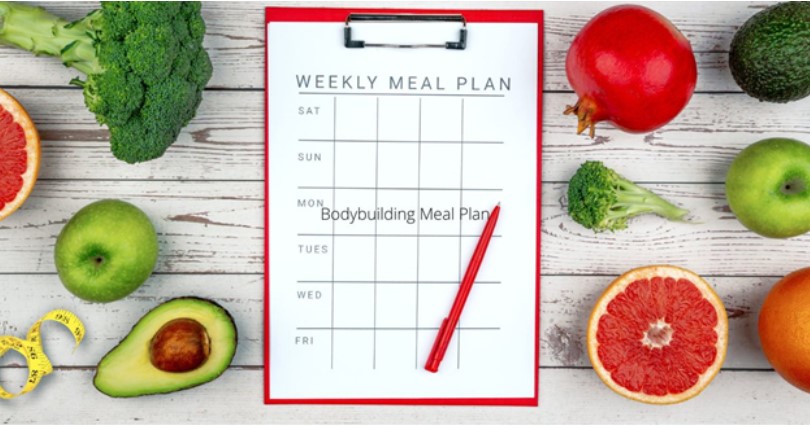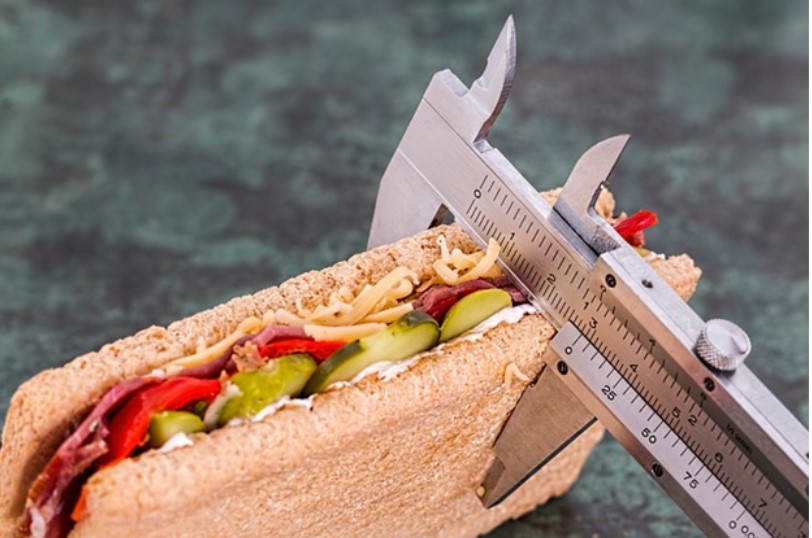Setting Goals for Your Bodybuilding Meal Plan
#Determining Your Calorie Needs
Calorie needs are the cornerstone of any successful bodybuilding meal plan. Determining your daily calorie requirements is the first step in creating a customized nutrition regimen that will support your muscle-building goals. You could use an online calculator or work with a qualified nutritionist to determine your caloric needs based on factors such as age, sex, height, weight, and activity level. Once you have established your target calorie intake, it’s essential to divide it into macronutrient ratios for protein, carbohydrates, and fats. Monitoring your progress and adjusting your meal plan accordingly is vital for achieving optimal results.#Deciding on Your Macronutrient Ratios
When it comes to building muscle, macronutrients are a crucial component of any bodybuilding meal plan. Proteins, carbohydrates, and fats all play important roles in fueling your body for workouts and supporting muscle growth. To determine the ideal macronutrient ratios for your bodybuilding goals, consider factors such as your body type, activity level, and personal preferences. While protein is essential for muscle repair and growth, carbohydrates provide energy for workouts and help replenish glycogen stores. Additionally, healthy fats are important for hormone production and overall health. By finding the right balance of macronutrients, you can optimize your bodybuilding meal plan to support your fitness goals.
Building Your Bodybuilding Meal Plan
Designing a bodybuilding meal plan requires careful consideration of your goals, nutritional needs, and personal preferences. Here’s a step-by-step guide to help you build an effective meal plan:
- Determine Your Daily Caloric Intake: Calculate your Total Daily Energy Expenditure (TDEE) using an online calculator. This will provide an estimate of how many calories you need to maintain your current weight.
- Set Your Macronutrient Ratios: For bodybuilding, a common macronutrient ratio is around 40% carbohydrates, 30% protein, and 30% healthy fats. Adjust these ratios based on your specific needs and preferences.
- Select High-Quality Protein Sources: Choose lean sources of protein such as chicken breast, turkey, lean beef, fish, eggs, Greek yogurt, tofu, and legumes. Aim for a consistent protein intake throughout the day.
- Choose Complex Carbohydrates: Opt for complex carbohydrates that provide sustained energy and fiber. Good sources include whole grains, brown rice, quinoa, sweet potatoes, oats, and fruits.
- Incorporate Healthy Fats: Include healthy fats in your diet from sources like nuts, seeds, avocados, olive oil, coconut oil, and fatty fish (salmon, mackerel).
- Include Sufficient Fiber: Ensure your meal plan includes enough dietary fiber from vegetables, fruits, whole grains, and legumes. Fiber aids digestion and promotes satiety.
- Plan Your Meals and Snacks: Divide your daily calorie and macronutrient requirements into several meals and snacks. Spread protein intake evenly across meals to support muscle synthesis.
- Prioritize Pre- and Post-Workout Nutrition: Consume a balanced meal with protein and carbohydrates about 1-2 hours before your workout. After exercise, include a post-workout meal or snack to replenish glycogen stores and support muscle recovery.
- Hydration: Drink plenty of water throughout the day to stay hydrated. Adjust your intake based on activity levels and individual needs.
- Monitor Progress and Adjust: Regularly assess your progress, body composition, and energy levels. Make adjustments to your meal plan as needed to meet your goals.
Remember to consult with a registered dietitian or nutritionist who specializes in sports nutrition to ensure your meal plan aligns with your specific needs and goals.
Healthy Fats for Bodybuilding
Incorporating healthy fats into your bodybuilding meal plan is crucial for achieving your fitness goals. Not only do they provide energy, but they also aid in muscle growth and help you feel fuller for longer periods of time.
Sources of healthy fats include nuts, seeds, avocado, olive oil, and fatty fish. However, it’s important to consume the right amount of healthy fats based on your fitness goals and activity level.
Consulting a nutritionist or dietitian can help you create a personalized bodybuilding meal plan that includes the right balance of nutrients and ensures that you’re fueling your body with the right types and amounts of healthy fats.

Choosing the Right Supplements for Bodybuilding
Supplements are a popular addition to any bodybuilding meal plan, but it’s essential to choose the right ones for your unique needs and goals. Consulting with a healthcare professional can help you select supplements that will support your bodybuilding journey. Protein powders are an excellent choice for increasing protein intake for muscle building and recovery, while creatine can enhance strength and performance during workouts. Additionally, pre-workout formulas, BCAAs, and multivitamins can be beneficial for promoting overall health and wellness. By incorporating the right supplements into your bodybuilding meal plan, you can take your physique to the next level.
Planning Your Daily Meals for Bodybuilding
When it comes to planning your daily meals for bodybuilding, there are a few key things to keep in mind. First and foremost, it’s important to determine your daily caloric needs based on your body type and fitness goals.
- Once you have a target number of calories, you can start choosing nutrient-dense foods that are high in protein, complex carbohydrates, and healthy fats.
- One helpful tip is to plan out your meals in advance to ensure you’re getting all the nutrients you need throughout the day. This can also help you avoid last-minute unhealthy snack choices when hunger strikes.
- Additionally, incorporating supplements such as whey protein or creatine into your meal plan as needed can help support muscle building and recovery.
With careful planning and attention to your nutritional needs, creating a daily meal plan for bodybuilding can be both effective and enjoyable.
Designing a 7-Day Meal Plan for Bodybuilding
Here is a sample 7-day meal plan for bodybuilding:
Day 1
- Breakfast: Oatmeal with berries and nuts
- Lunch: Chicken salad sandwich on whole-wheat bread
- Snack: Protein shake
- Dinner: Grilled salmon with roasted vegetables
Day 2
- Breakfast: Eggs with whole-wheat toast
- Lunch: Tuna salad on whole-wheat crackers
- Snack: Yogurt with fruit
- Dinner: Chicken stir-fry with brown rice
Day 3
- Breakfast: Waffles with peanut butter and banana
- Lunch: Leftover chicken stir-fry
- Snack: Trail mix
- Dinner: Steak with sweet potato fries
Day 4
- Breakfast: Pancakes with syrup and fruit
- Lunch: Turkey sandwich on whole-wheat bread
- Snack: Protein bar
- Dinner: Shrimp scampi with pasta
Day 5
- Breakfast: Omelet with cheese and vegetables
- Lunch: Salad with grilled chicken
- Snack: Hard-boiled eggs
- Dinner: Lentil soup
Day 6
- Breakfast: Yogurt with granola and fruit
- Lunch: Leftover lentil soup
- Snack: Trail mix
- Dinner: Pizza with whole-wheat crust
Day 7
- Breakfast: Waffles with peanut butter and banana
- Lunch: Salad with grilled chicken
- Snack: Protein bar
- Dinner: Out to eat at a healthy restaurant
This is just a sample meal plan, and you may need to adjust it based on your individual needs and preferences. It is important to consume a variety of foods from all food groups to ensure that you are getting all the nutrients your body needs to build muscle. You should also make sure to drink plenty of water throughout the day.
Here are some additional tips for designing a bodybuilding meal plan:
- Aim to consume 1.2 to 1.7 grams of protein per kilogram of body weight each day.
- Get 45 to 65% of your calories from carbohydrates.
- Get 20 to 35% of your calories from fat.
- Eat regular meals and snacks throughout the day to keep your metabolism revved up.
- Include a variety of fruits, vegetables, and whole grains in your diet.
- Avoid processed foods, sugary drinks, and excessive amounts of saturated and unhealthy fats.
If you are new to bodybuilding, it is a good idea to talk to a registered dietitian or certified personal trainer who can help you create a meal plan that is tailored to your individual needs and goals.
Adjusting and Adapting Your Bodybuilding Meal Plan
In the world of bodybuilding, adjusting and adapting your meal plan is essential to achieve your fitness goals. It is important to monitor your progress and make adjustments accordingly. Incorporating a variety of nutrient-dense foods that provide ample protein, carbohydrates, and healthy fats is crucial for optimal muscle growth and recovery. Additionally, it’s recommended to consider meal frequency and timing to maximize the effectiveness of your meal plan. Keeping track of macros and calories also helps ensure proper nutrition intake. Remember, don’t be afraid to make changes as needed based on personal preferences or dietary restrictions to achieve long-term success.

Common Mistakes to Avoid with Your Bodybuilding Meal Plan
Here are some common mistakes to avoid with your bodybuilding meal plan:
- Not eating enough protein. Protein is essential for muscle growth and repair. Aim to eat 1-1.5 grams of protein per pound of body weight each day.
- Not eating enough calories. If you’re not eating enough calories, you won’t have the energy to train hard or build muscle. Aim to eat a surplus of 200-300 calories per day above your maintenance calories.
- Not eating enough carbs. Carbs are the body’s main source of energy. If you’re not eating enough carbs, you’ll feel tired and sluggish, and you won’t be able to train as hard. Aim to eat 45-60% of your calories from carbs.
- Not eating enough fat. Fat is essential for hormone production and cell growth. Aim to eat 20-30% of your calories from fat.
- Not eating enough fruits and vegetables. Fruits and vegetables are packed with vitamins, minerals, and antioxidants. Aim to eat at least 5 servings of fruits and vegetables per day.
- Not drinking enough water. Water is essential for proper bodily function. Aim to drink 8 glasses of water per day.
- Not tracking your progress. It’s important to track your progress so you can see what’s working and what’s not. Track your weight, body fat percentage, strength, and muscle mass.
- Not being patient. It takes time to build muscle and lose fat. Don’t expect to see results overnight. Be patient and consistent with your diet and training, and you will eventually reach your goals.
Here are some tips to help you avoid these mistakes:
- Work with a qualified nutritionist or dietitian. They can help you create a meal plan that is tailored to your individual needs.
- Read food labels carefully. Make sure you know what you’re eating and how much of each nutrient you’re getting.
- Cook at home more often. This will give you more control over the ingredients in your food.
- Plan your meals ahead of time. This will help you stay on track and avoid unhealthy choices.
- Make healthy snacks available. This will help you avoid unhealthy cravings.
- Don’t be afraid to experiment. There are many different ways to eat healthy. Find what works best for you and stick with it.
Let’s Sum Up
To build the dream physique of your bodybuilding goals, a well-designed meal plan is essential. It helps you achieve your calorie and macronutrient requirements while providing the necessary nutrients for muscle growth and repair. The benefits of a bodybuilding meal plan are numerous, including increased energy, better performance, and faster recovery times. However, it’s crucial to set realistic goals based on your fitness level, body type, and lifestyle.



